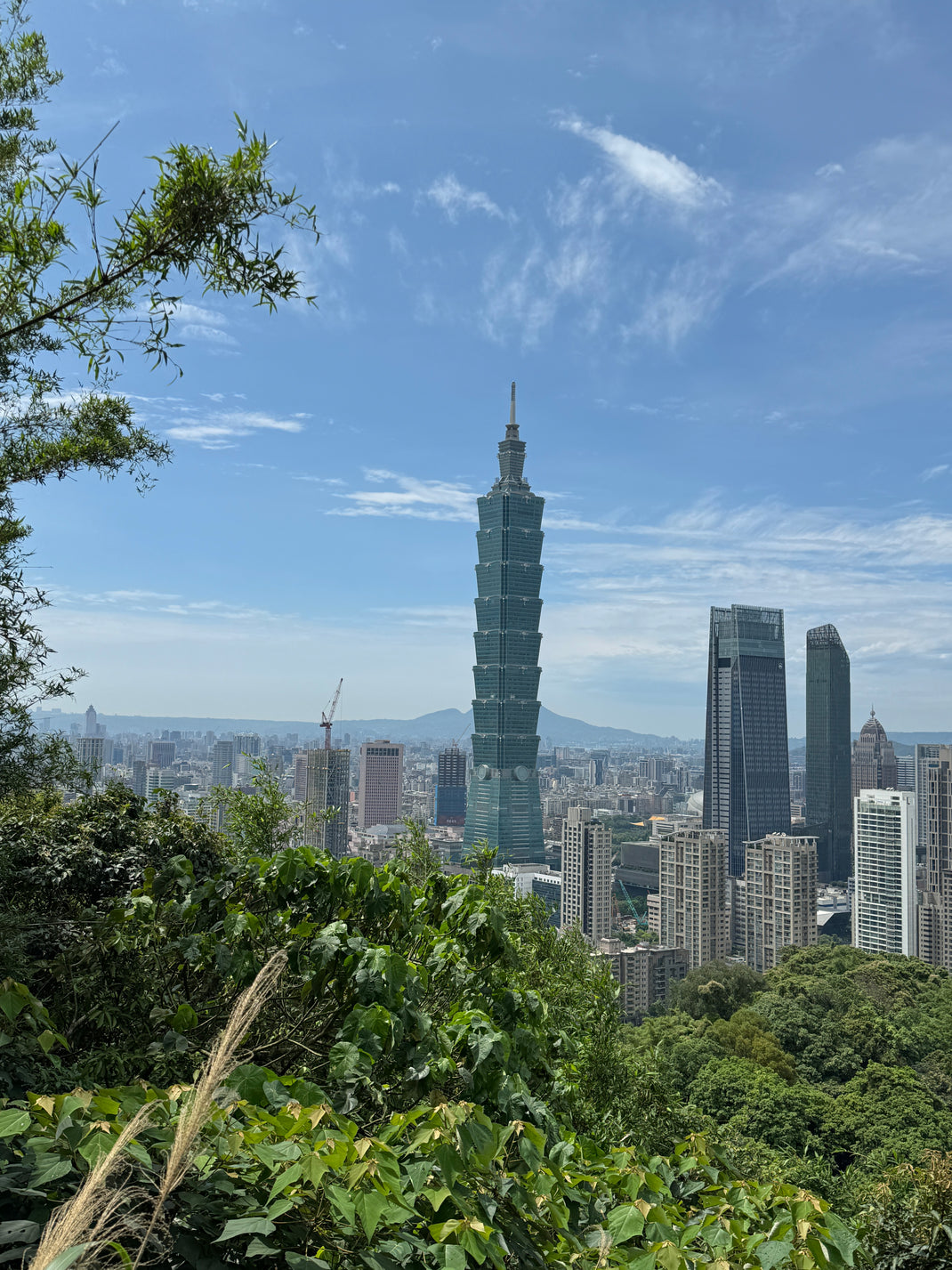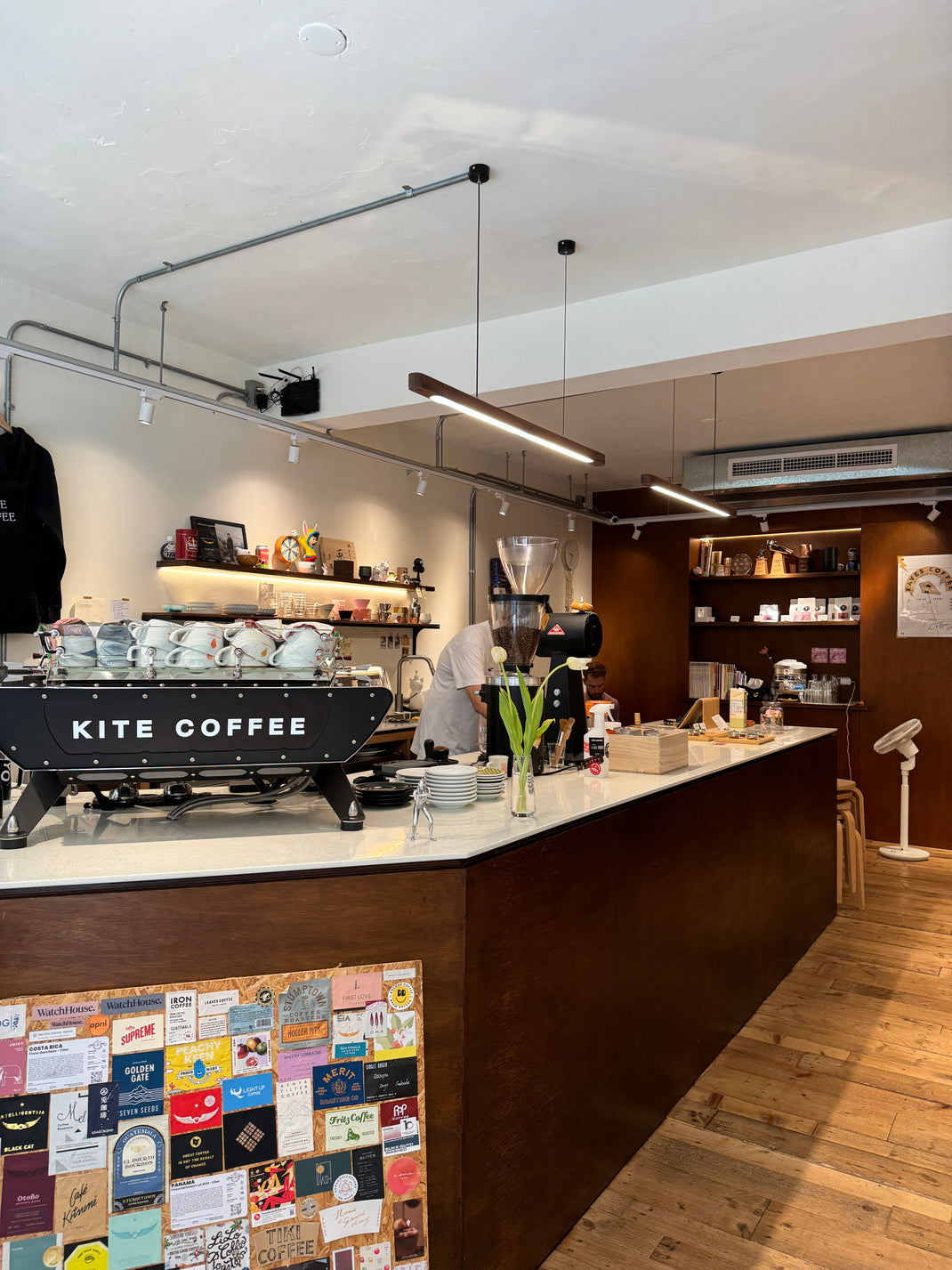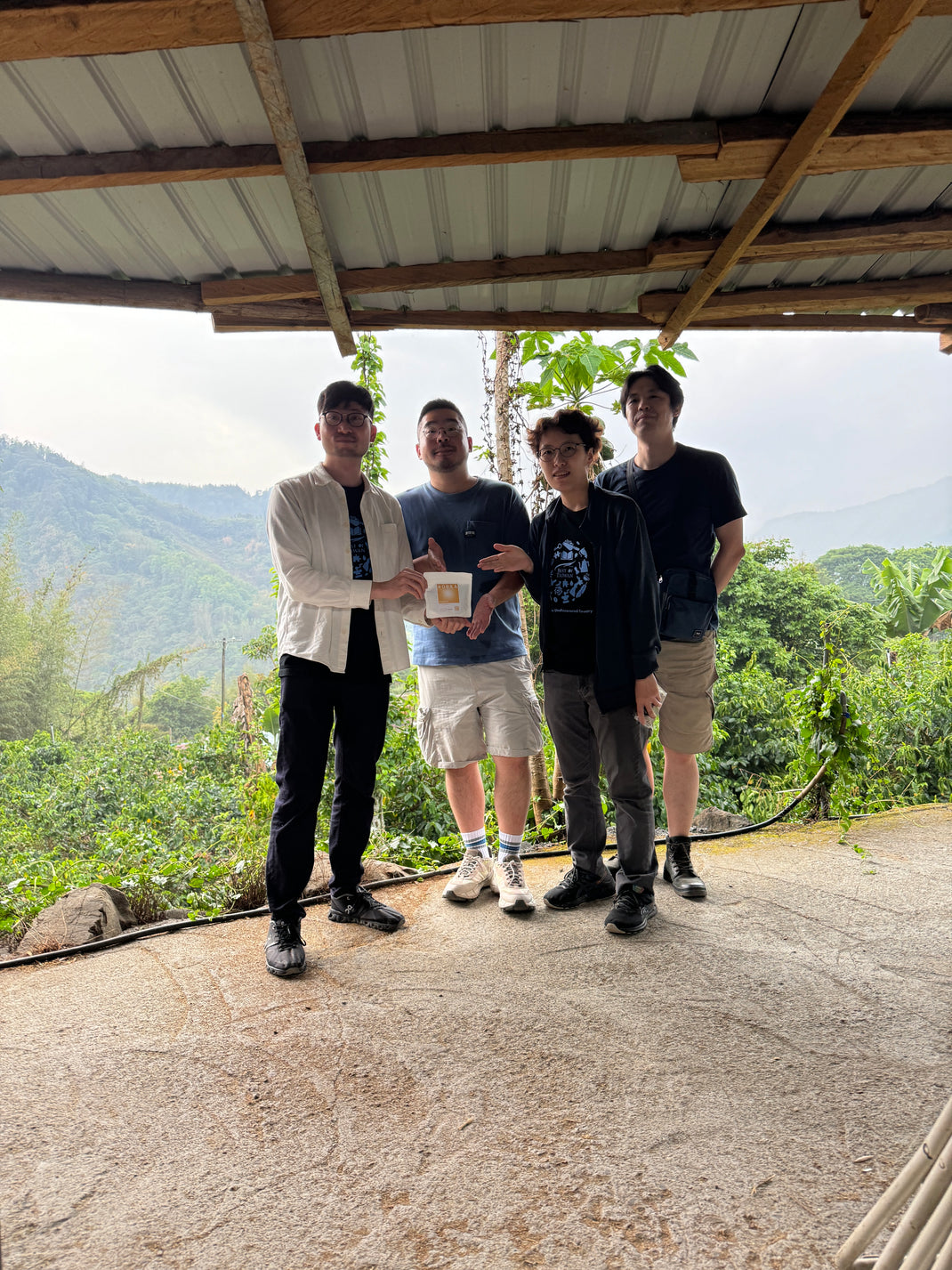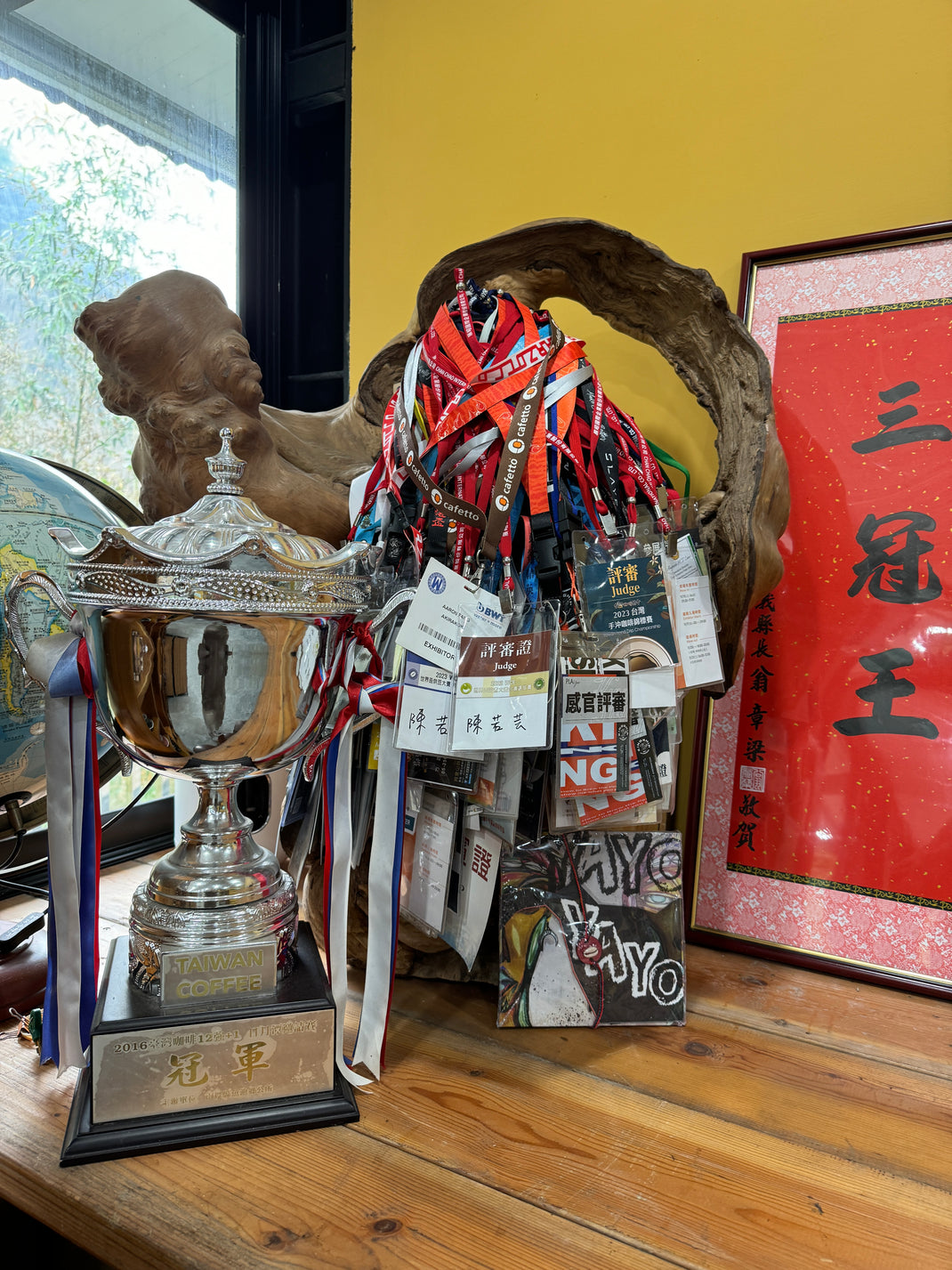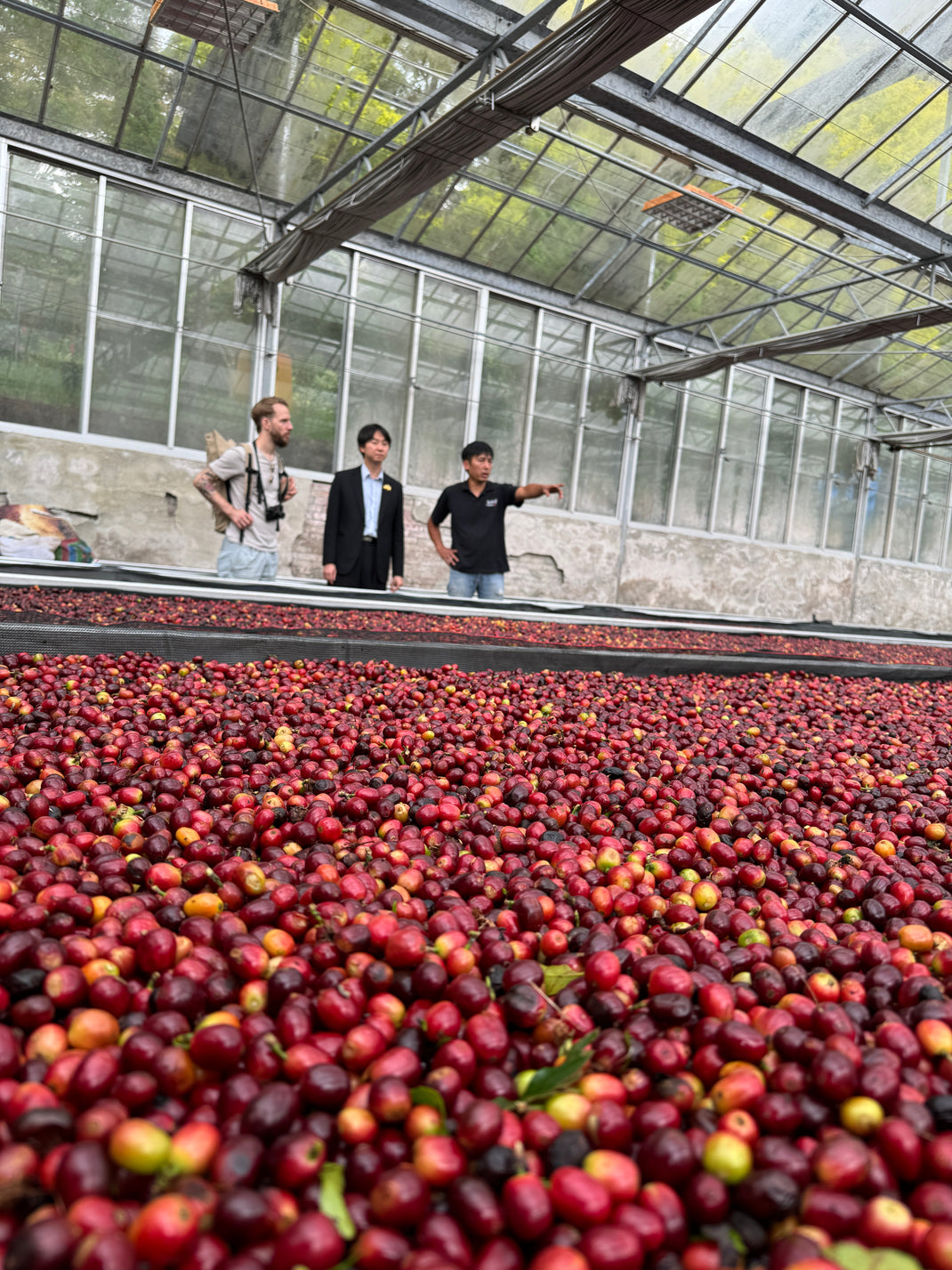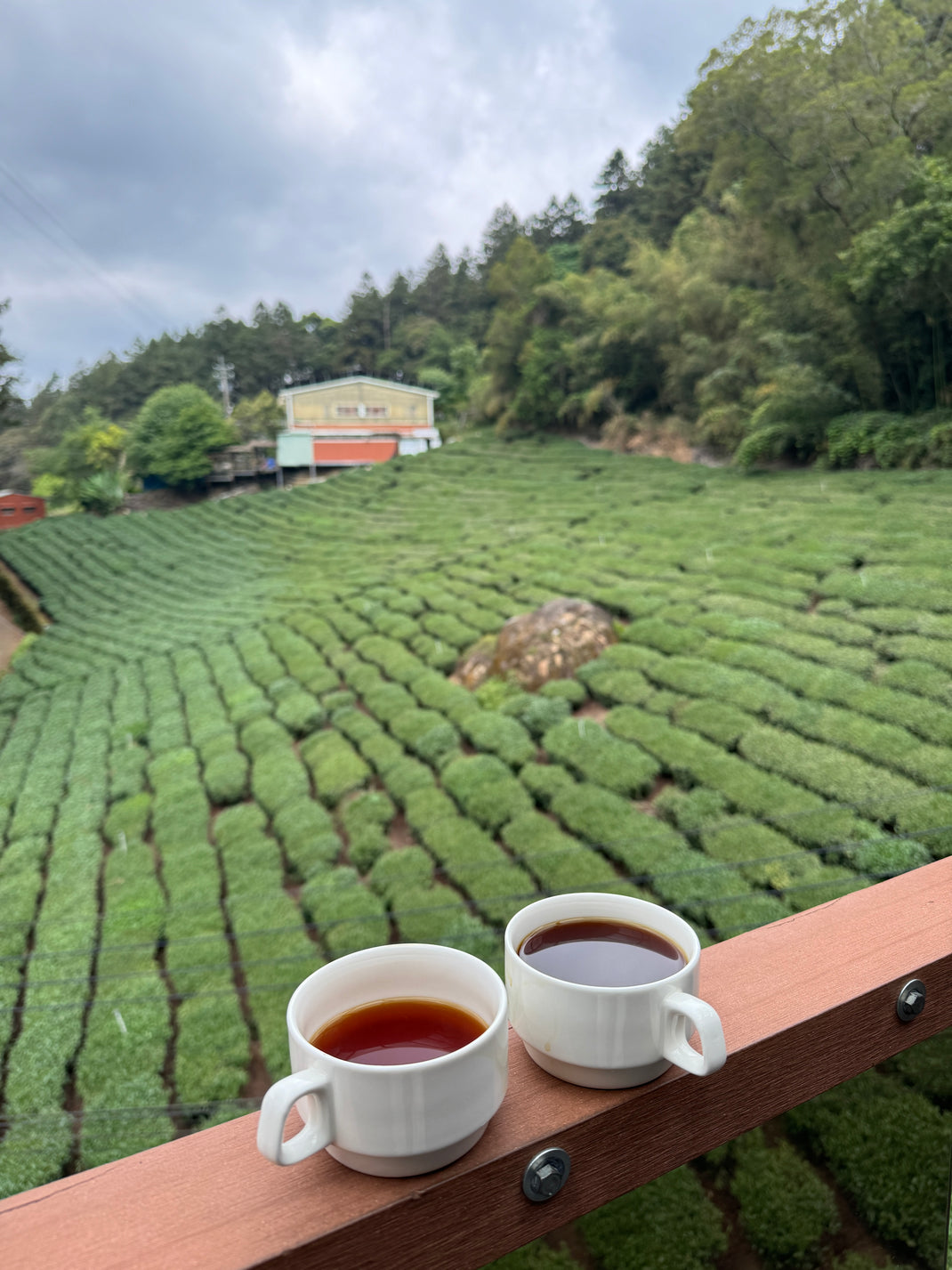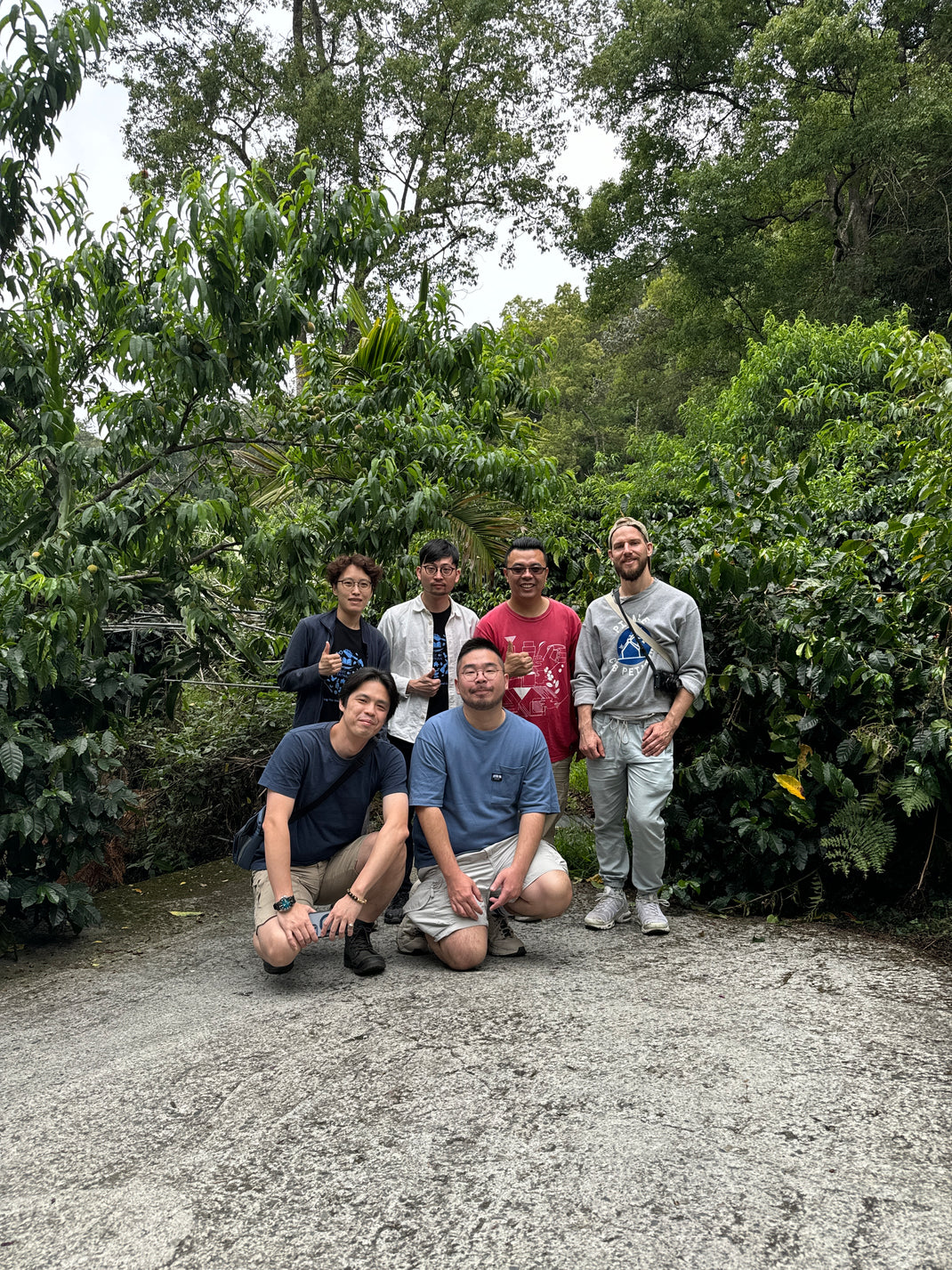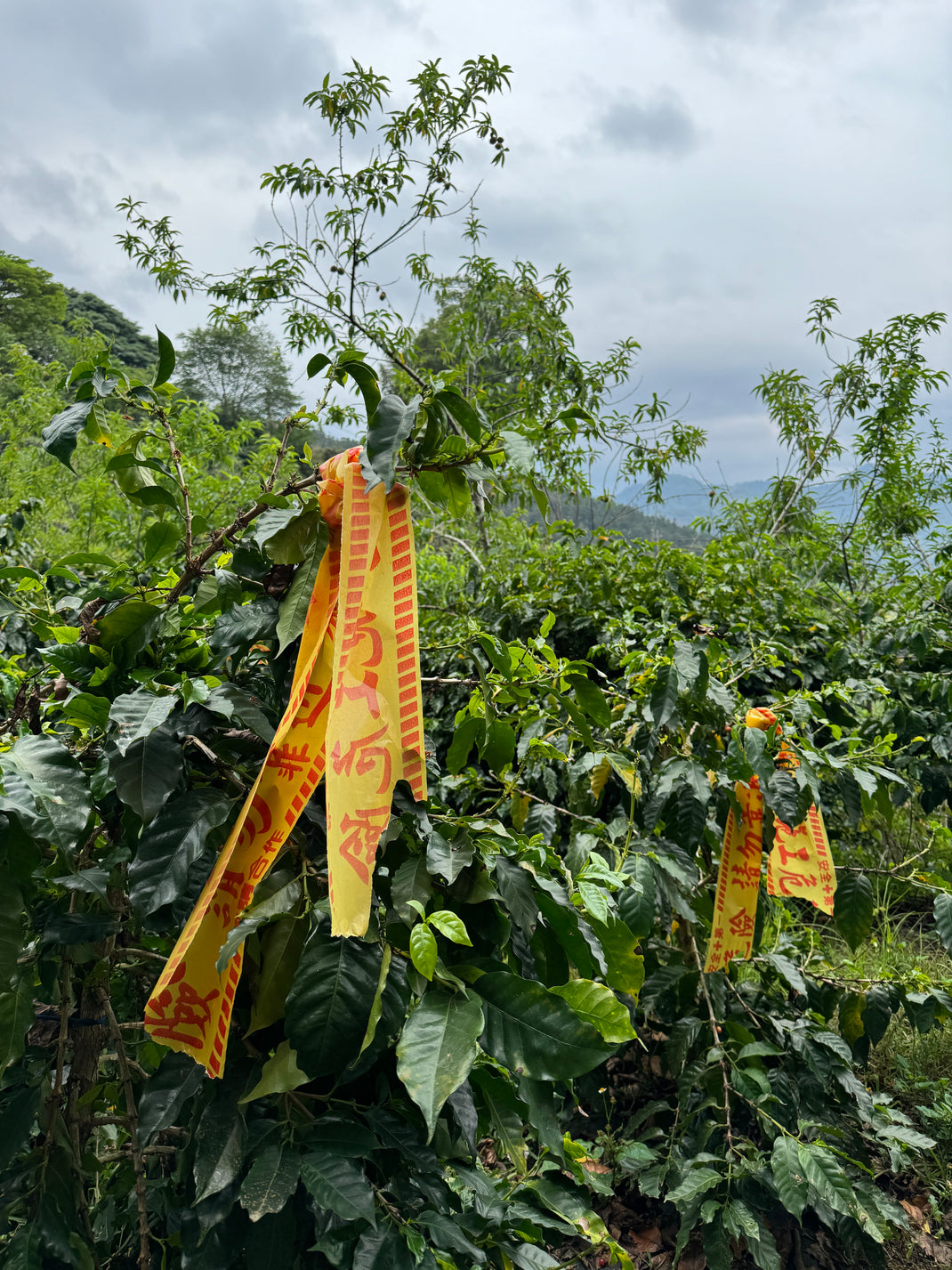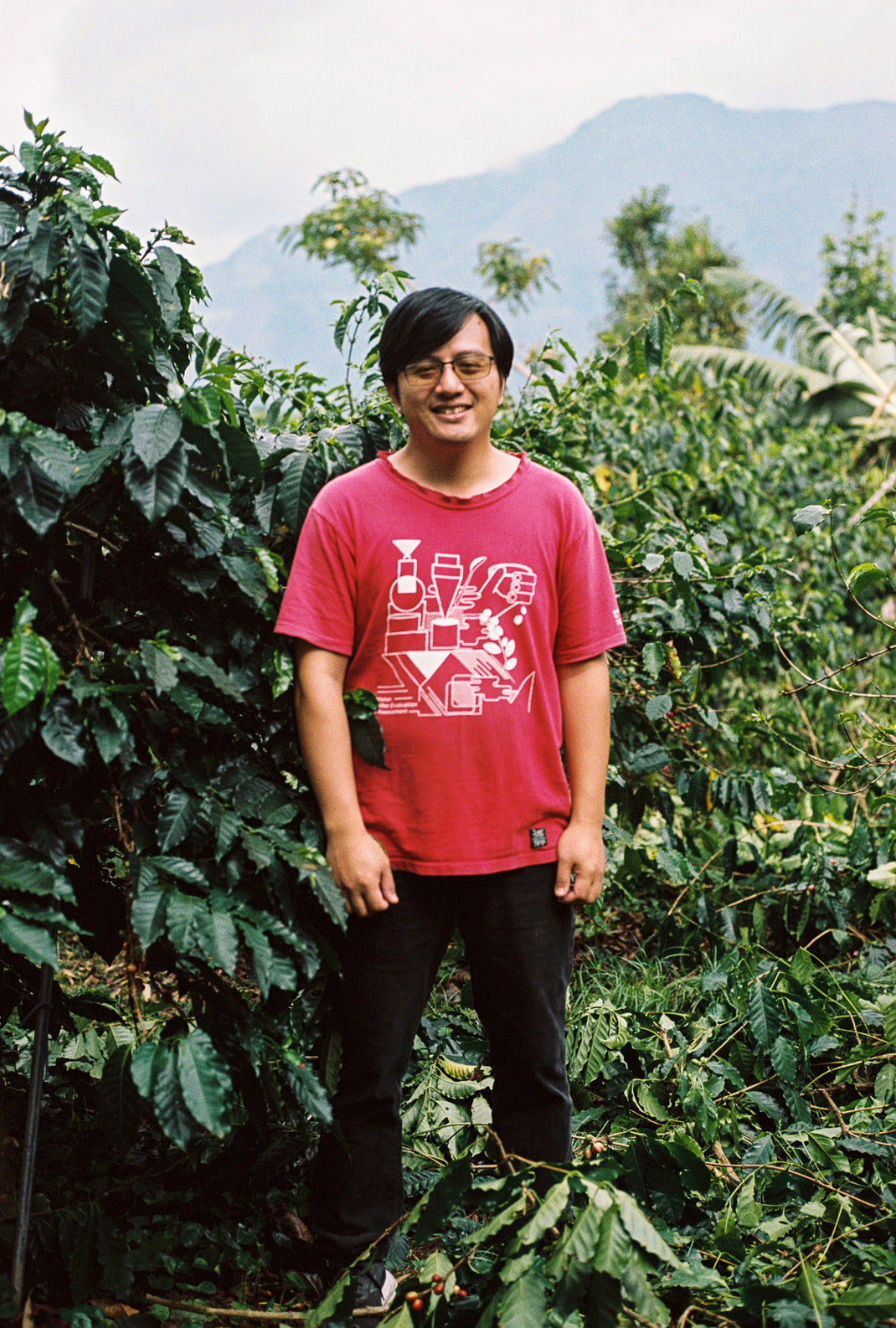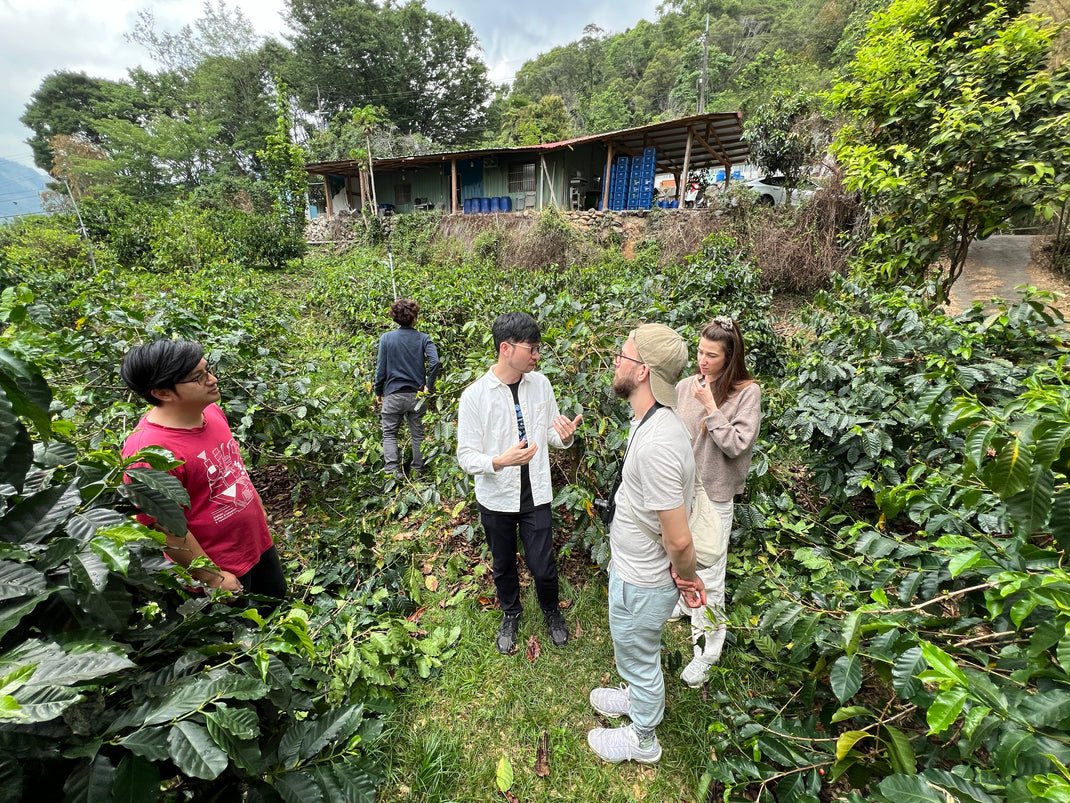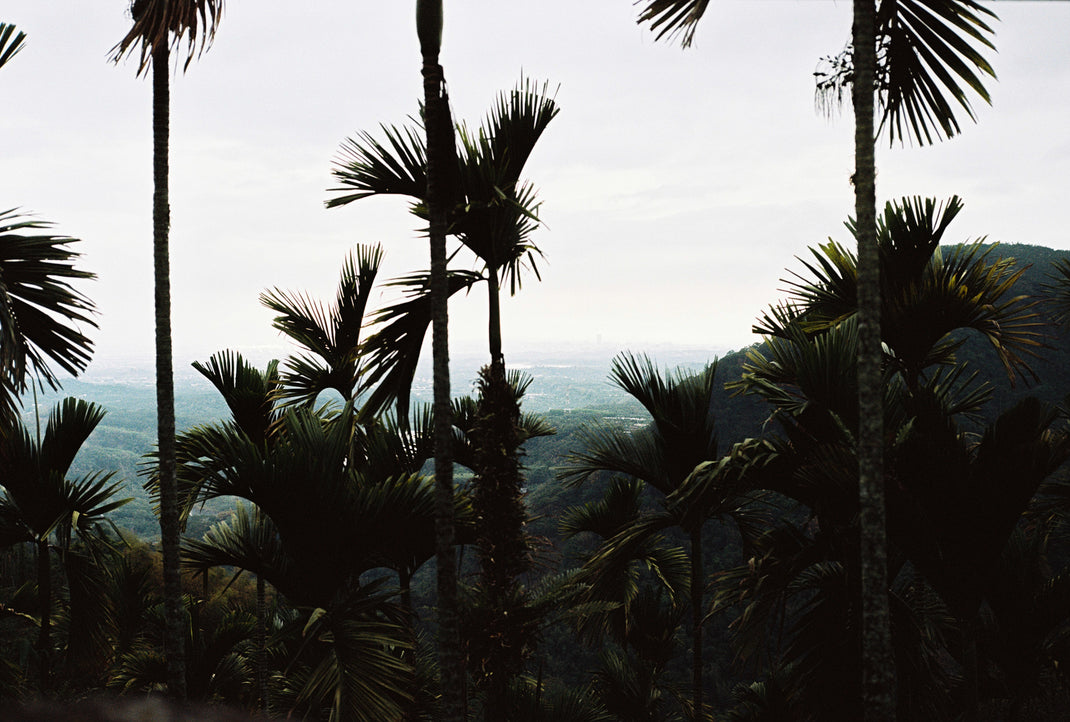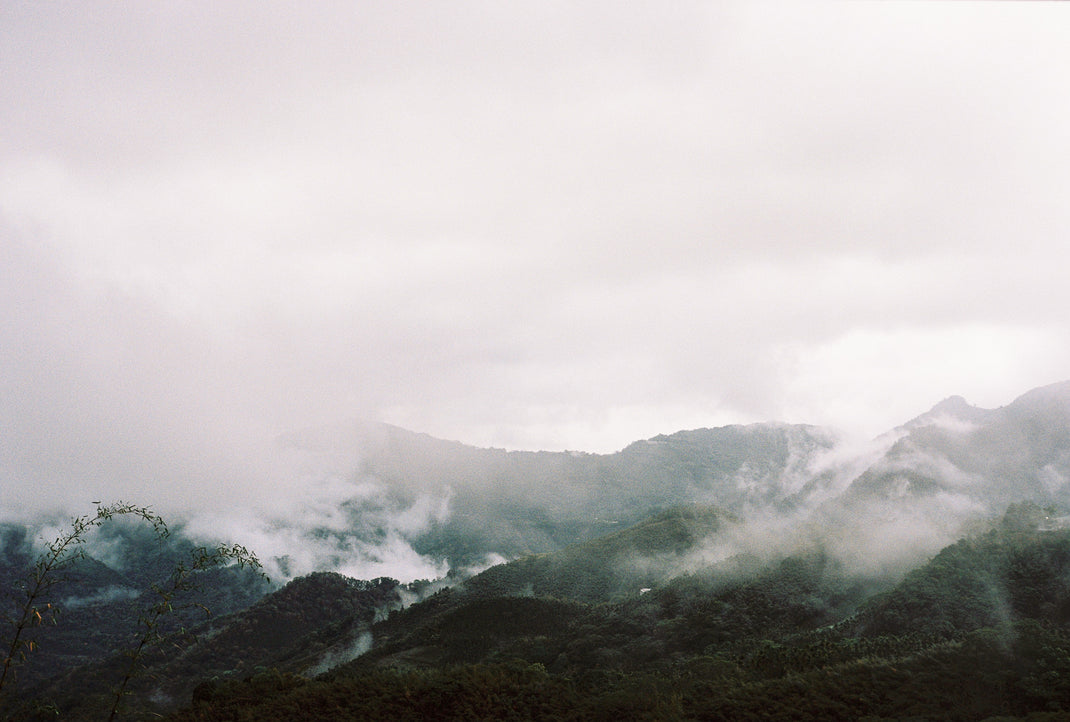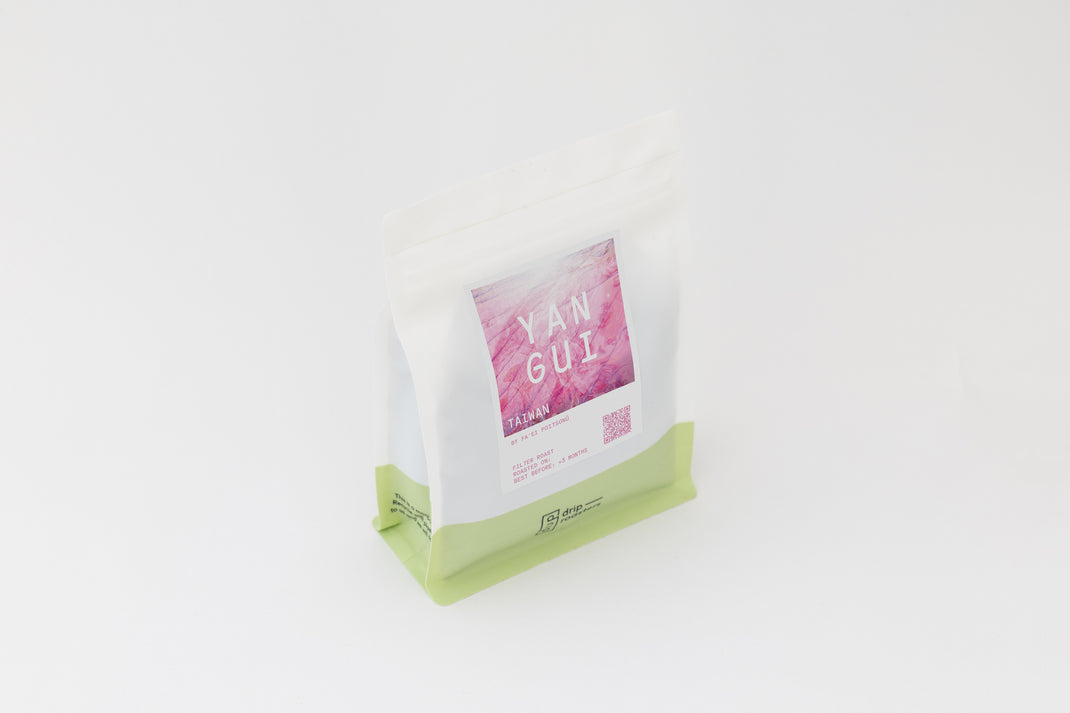Before making our way to the World of Coffee event in Busan, we decided to venture off to Taiwan, a country we've grown to admire for its flourishing specialty coffee scene. Our connection to Taiwan began in 2023 with a coffee exchange with Kite, a coffee shop and roastery in Taipei. This relationship was sparked by Ivan, one of our baristas at the time, who frequented Kite during his exchange semester in Taipei. We enjoyed Kite’s coffee so much (and so did our customers) that we arranged a second coffee exchange during this visit, allowing us to spend more time with the passionate duo behind Kite and dive deeper into Taiwan's vibrant coffee culture. But our trip was also about exploring Taiwan's unique coffee farms to source exceptional green coffee.
Taiwan Coffee Lab
Taiwan's specialty coffee scene impressed us with its passion for light roasts, single origins and its innovative and enthusiastic producers. One key player of Taiwan’s coffee development has been Taiwan Coffee Laboratory (TCL). The lab is committed to promoting specialty coffee grown in Taiwan. They accomplish this through technical services, teaching and hosting coffee education programs, organizing several coffee evaluation programs every year and awarding the best Taiwanese coffees. TCL works in collaboration with the Alliance for Coffee Excellence, the Specialty Coffee Association, and the Coffee Quality Institute, as well as the Taiwanese government to promote locally grown coffee to the world and foster community exchange between coffee professionals.
Our journey through Taiwan's coffee landscape wouldn't have been possible without the invaluable support and guidance of Taiwan Coffee Lab. We had reached out to them for more information about Taiwanese coffee farms several months before our trip. Not only did they provide lots of information, but they readily offered to be our guides, accompanying us to each farm, translating, and offering insights. They made sure that we gained a well-rounded perspective on Taiwanese coffee production, from small-scale operations to larger estates. Here’s a recap of our visits to three standout coffee farms: Zou Zhou Yuan, Melastoma Coffee Estate, and Yangui Coffee Manor.
Zou Zhou Yuan: Precision and Perfection
Our first stop was at Zou Zhou Yuan, where we were greeted by Aaron, affectionately known as the «Coffee Prince of Taiwan», and Krude Lin, founder of Taiwan Coffee Lab. Aaron's farm is a testament to ambition and innovation. With a harvest period stretching from November to June, the farm grows a number of different coffee varieties including SL34, Geisha, and Pink Bourbon. On top, the Prince runs lots of experiments with all sorts of hybrids between varieties and even crossing coffee with other plants.
Aaron's meticulous approach was evident throughout our visit. The farm employs advanced AgroClimate technology with sensors measuring things such as soil moisture, humidity, and temperature every ten minutes. This data-driven approach will, over time, allow Aaron to replicate successful growing conditions and ensure consistent quality. The use of a controlled greenhouse for drying coffee, alongside traditional methods, highlighted the farm's blend of tradition and innovation. The farm visit was followed by a cupping session in the dedicated cupping and workshop space on site.
Upon returning to Alishan after spending years in Taipei, studying, Aaron felt the need to emancipate himself from his family’s history of growing orchids and tea – striving to excel in his very own business endeavour. Successfully so: Zou Zhou Estate’s coffee has won a multitude of coffee competitions and is definitely one of Taiwan’s most famous coffee farms. Aaron has become a role model for other coffee producers in Taiwan and has played a crucial role in paving the way for Taiwanese specialty coffee.
Melastoma Coffee Estate: Harmonizing Coffee and Community
The next day, we visited Melastoma Coffee Estate, a coffee and tea farm in Alishan, and were shown around by Huang Pao-His. This farm is not just about coffee: It’s a community hub with a bed and breakfast, restaurant, café, a shop and even camping facilities. Spanning three locations at different elevations (800, 1000, and 1300 masl), the farm grows SL34, Geisha, and Typica, producing around 3 tons of green coffee annually.
Pao-His' interest in environmental and social practices was evident and he hopes to win a newly established sustainability award organized by Taiwan Coffee Lab. He uses organic fertilizer and has developed innovative systems to protect trees during weeding and typhoons. The farm’s main buildings are surrounded by tea fields, lush forests and colorful flowers. Visitors have access to a trail network through the rolling hills of the Chiayi region.
The farm’s commitment to quality was obvious in their cupping process, conducted in collaboration with Taiwan Coffee Lab and other local specialty coffee professionals to select the best lots for an upcoming competition. The cupping space in the basement of the main building is not only adorned with decorations inspired by the region’s indigenous Tsou people, but also with numerous awards, certificates, diplomas, medals and prizes showcasing the farm’s success in producing coffee.
Yangui Coffee Manor: Innovation and Humor
Our final stop was at Yangui Coffee Manor, named after the producer, Pu Han Wen’s mother in Tsou tongue. This farm is characterized by its innovative practices and the owner’s infectious humor. With around 4000 trees, it produces approximately 2 tons of coffee annually and grows varieties like SL34, Typica, and Geisha.
We noticed Yangui's emphasis on experimentation and resourcefulness on the fields as well as in their processing and fermentation techniques. Pu Han Wen (Tsou name: Fa’ei Poitsonü) has built and patented his own mechanical dryer to combat the region's unreliable hours of sunshine, frequent rains and high humidity. This dryer, combined with his custom-built storage room, where the coffee is left to rest after drying, ensures the coffee maintains its quality.
Our visit on the farm was topped off with a cupping session during which we got to taste six coffees. When we showed interest in a particular coffee after the tasting, Pu Han Wen immediately milled a small sample of coffee for us to bring home. The visit on Yangui Coffee Manor was filled with laughter and camaraderie and Pu Han Wen’s innovative spirit and the farm’s small-scale yet high-quality production left a lasting impression. After going back to Taipei, we had the chance to taste Yangui’s coffee in a specialty coffee shop and were really impressed with the light roasted Typica that was served. Since our visit, Yangui has won four prizes in five categories in the Alishan Coffee Evaluation and Assessment. Taiwan Coffee Lab says: 'It's truly a remarkable achievement to win the prize from 167 submissions in the most competitive producing region. We are very happy for him.’
The Rich History of Coffee in Taiwan
Coffee was first introduced to Taiwan by the Japanese during their occupation in the early 20th century. The Japanese planted Typica coffee trees in the island's central and southern regions, where the climate and terrain were favorable for coffee cultivation.
After World War II and the end of Japanese rule, coffee production in Taiwan saw a decline as tea farming became more popular. For decades, Taiwan was primarily known for its high-quality tea, particularly oolong, which overshadowed the coffee industry. However, the 21st century brought a coffee renaissance to Taiwan, fueled by a growing domestic coffee culture. In recent years, Taiwanese coffee farmers have shifted their focus towards high-quality, specialty coffee production. The emphasis on quality over quantity has become a hallmark of Taiwanese coffee.
Taiwan's coffee farms present a unique blend of advanced technology, substantial financial investment, and a strong emphasis on quality. This stands in contrast to some of the coffee farms we've visited in Mexico, Costa Rica or Kenya, where more traditional methods and financial constraints shape the coffee farming landscape, despite the same emphasis on quality. The majority of Taiwanese coffee producers choose to work in coffee because they have very specific ambitions to produce high quality coffee. These coffee producers are often well educated and financially stable – similarly to other affluent coffee growing regions like Panama or Hawaii.
Our visit to Taiwan highlighted the potential of what can be achieved with robust financial backing and how financial (and political) security can foster a focus on innovation and quality.
Exploring Alishan
Alishan, located in Chiayi County, is renowned for its stunning mountainous landscapes and high-altitude tea plantations. In recent years, it has also gained recognition for its specialty coffee farms – it is sort of the Yirgacheffe of Taiwan. The cool climate, abundant rainfall, and fertile soil create optimal conditions for growing varieties like Geisha, SL34, and Typica. Coffee from Alishan is known for its complex flavors and vibrant acidity. Alishan is popular with tourists, owed to the stunning tea plantations, nature and beautiful spots for watching a spectacular sunrise over a sea of clouds. Although Taiwan's efficient railway system and bus connections make it relatively easy for tourists to reach Alishan, renting a car is the best option if you plan to visit multiple farms and explore the surrounding attractions at your own pace.
The Tsou Heritage in Alishan's Coffee Culture
An interesting aspect of our journey through Taiwan's coffee regions was the connection to the indigenous Tsou people, who have inhabited the Alishan/Chiayi region for centuries. All three farms we visited – Zou Zhou Yuan, Melastoma, and Yangui – are connected to the Tsou culture and honor their heritage. Like many indigenous communities around the world, the Tsou people have faced challenges such as land disputes, cultural assimilation, and socioeconomic marginalization. It’s not the first time we’ve experienced the connection between indigenous tribe communities and coffee production: When we visited Huautla de Jiménez in Mexico to source coffee, for example, we visited farmers who were members of the Mazatec community. These connections between indigenous backgrounds in different coffee regions underscore the importance of cultural diversity and traditional knowledge in coffee production.
The Coffee
If you are interested in the coffee we ended up buying from Yangui Coffee Manor after this trip, find out all about it here.
